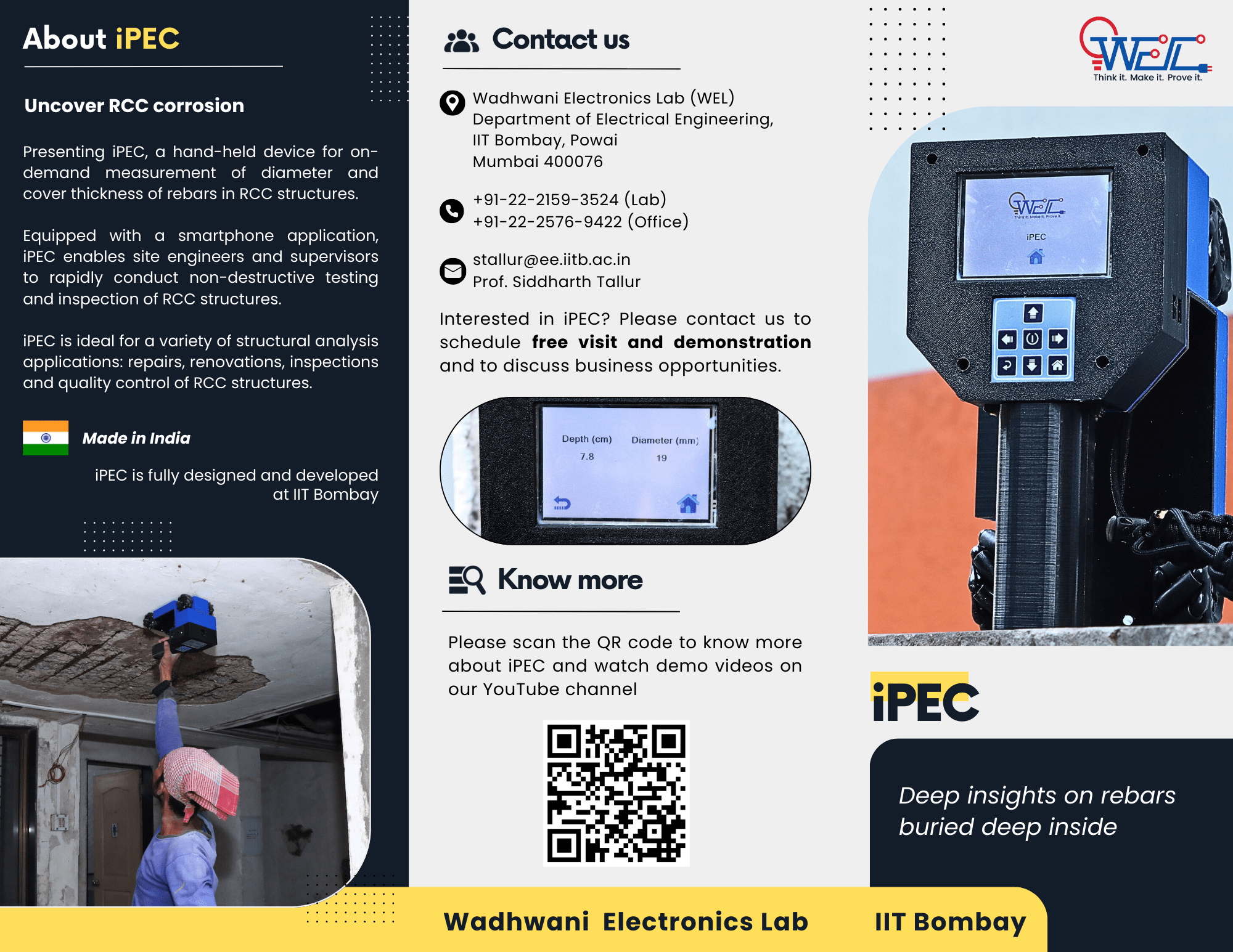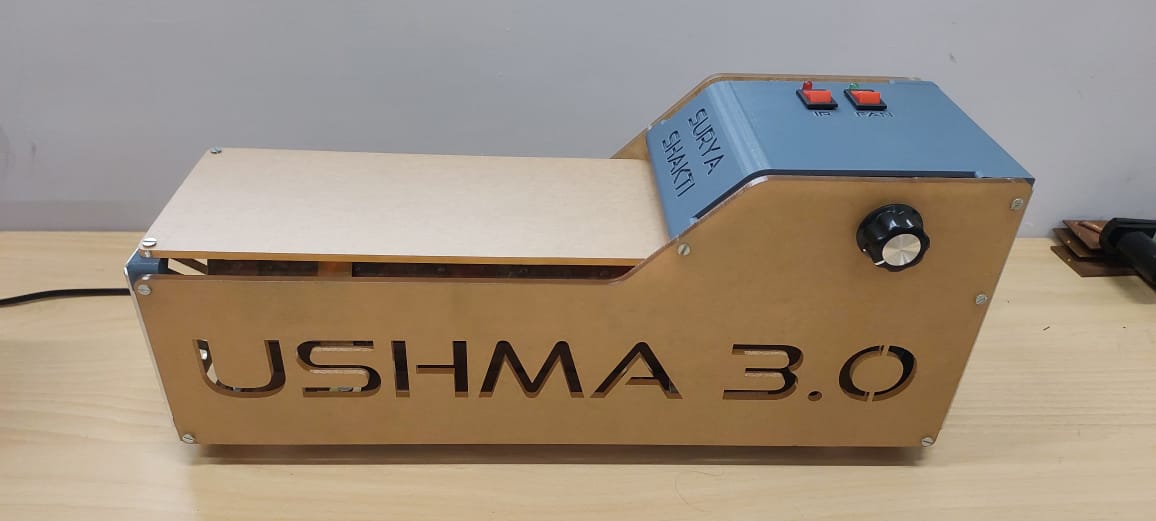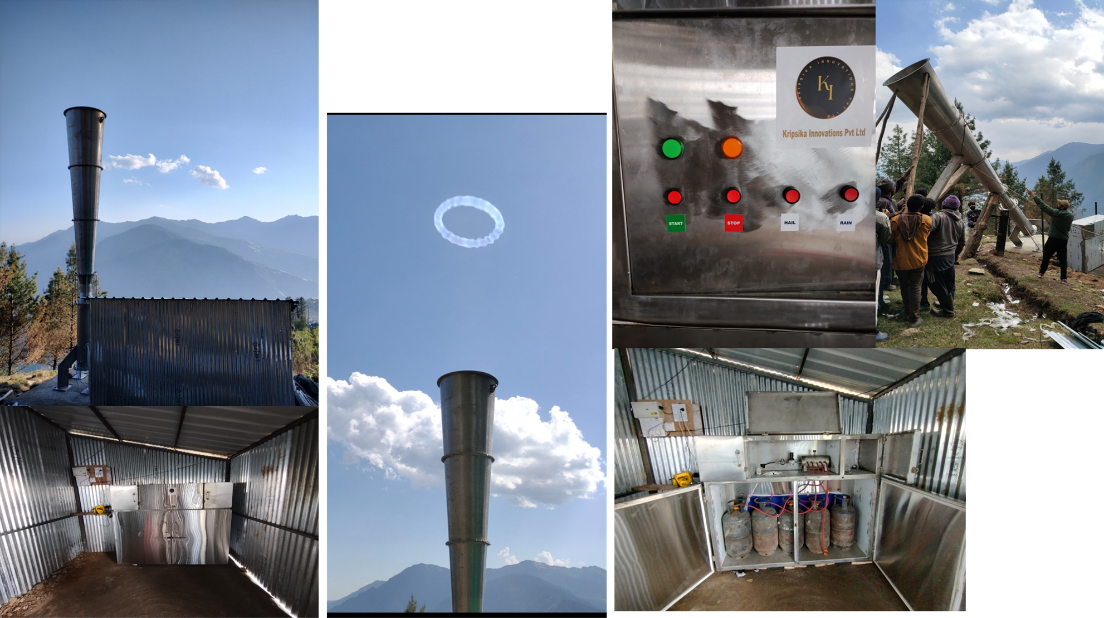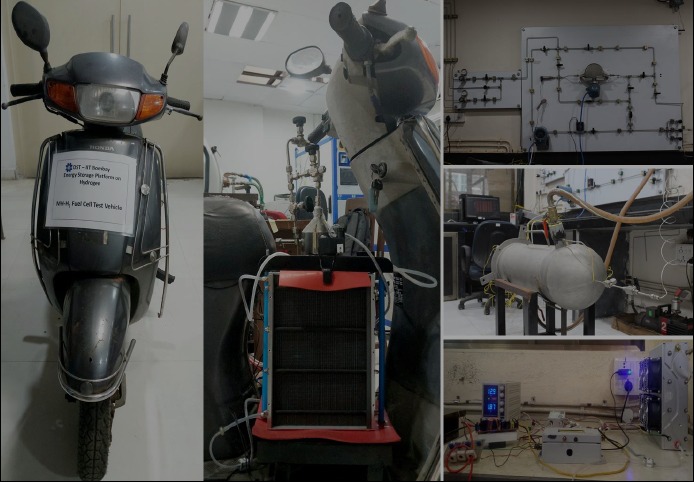Handheld pulsed eddy current probe for non-invasive profiling of steel rebars embedded in RCC structures (iPEC) Theme: Industry 4.0
(Prof. Siddharth Tallur, Electrical Engg)
Corrosion of steel rebar leads to structural failures in reinforced cement concrete (RCC) structures. Conventional inspection equipment using eddy current are costly, not manufactured in India, and not widely accessible. Premature failure of structures amplified by global warming may lead to mandatory inspection regulations in future. To address these gaps, we present iPEC, a portable handheld detector system for non-invasive inspection of steel rebars in concrete structures using pulsed eddy current. iPEC provides on-demand measurement of diameter and cover thickness of rebars in RCC structures, using a patent-pending algorithm for extracting features from time-domain signals through cost-effective on-board processing. iPEC enables site engineers and supervisors to rapidly conduct non-destructive testing and inspection of RCC structures and is ideal for a variety of structural analysis applications: repairs, renovations, inspections and quality control of RCC structures. More details about iPEC are available here: http://www.ee.iitb.ac.in/~stallur/ipec/. Other than iPEC, our lab is also focused on developing a variety of sensor systems for applications in structural health monitoring and wastewater epidemiology, with an intent to develop autonomous and robotic inspection systems instrumented with such sensors.
 |
Surya Shakti - Clean heating solutions for air and water Theme: Defense and Aerospace
Prof. C. Subramaniam, Chemistry and Prof. Sandip Saha, Mechanical Engineering
Overview : Indigenously developed coatings Nanocarbon Florets (NCF) exhibits remarkable efficiency for solar-thermal conversion (89%) and geenrates temperatures of ~150 deg C under solar illumination. Such coatings have been developed to harness the light energy from sun and convert it to thermal energy. The heat thus generated is termed as 'green-heat' since it is devoid of (a) any kind of chemical combustion of non-renewable fuels and (b) does not result in any green-house gas emissions. Such green-heat has been utilized for sustainable heating of water and space.
Potential : Water-heating and space-heating contributes to nearly 40% of the total CO2 emissions, globally. In this context, green-heat production with NCF coatings has been demonstrated for space-heating in cold climatic conditions and for water heating in residential spaces. The carbon footprint of this technology is 70% lower than any conventional routes.
 |
Development of an indigenous Anti Hail Gun for preventing crop destruction Theme: Agriculture
Prof. Sudarshan Kumar, Aerospace Engineering
Overview of technology: Hailstorms in Himachal Pradesh annually wreak havoc on apple crops, resulting in losses in crores for farmers and horticulturists. While anti-hail nets are a common preventive measure, their installation poses challenges. An alternative solution involves using anti-hail guns, which generate a detonation wave through a combustible fuel-air mixture, raising cloud temperatures and stopping hailstone formation. Imported anti-hail guns are costly (over 70 lakhs), and their reliance on expensive acetylene gas renders them financially burdensome for farmers. Recognizing the need for an affordable alternative, researchers from Combustion Research Lab, IITB, developed an indigenous anti-hail gun working on LPG, a readily available and economical fuel. The gun features a detonation tube, convergent-divergent duct, and diverging nozzle, with an estimated cost of 25-30 lakhs. This innovation makes the technology accessible to farmers, offering a cost-effective solution to protect crops from hail damage without compromising safety or efficiency.
 |
Metal Hydride based Hydrogen Storage Systems and Solutions Theme: Sustainable Technologies (clean energy, climate change, e-mobility, etc.)
(Prof. Pratibha Sharma, Energy Science & Engineering)
Hydrogen storage is the major bottleneck towards use of hydrogen as an energy carrier. The commercially mature technologies of storing compressed H2 gas (CGH2) and liquified H2 have limitations hindering faster, safer and economical adoption of hydrogen globally. To address these challenges, metal hydride (MH) based hydrogen storage is viewed as potential hydrogen storage solution as it offers high volumetric density, low pressure and near ambient temperature storage, long term reversible storage of hydrogen in alloys. At IIT Bombay, different MH reactors (with system volume 0.7 – 14 L) capable of storing 35 grams to 700 grams H2 (approx. 400 – 9000 L of H2) have been developed and demonstrated for applications like stationary power generation, hydrogen storage, space heating and cooling and thermal energy storage etc. At IInvenTiv-2024, IIT Hyderabad we have showcased the smaller version of prototype, capable of holding 4 kg of inter-metallic and multi-component alloy, that can hold about 60 g - 80 g of hydrogen. System integrated into a fuel cell powered two-wheeler gives a range of over 40 km per fuel-cycle. Our benchmark innovations include synthesis of high-gravimetric hydrogen storage alloy (4.14 wt%), storage systems ranging from 30 g to 700 g of hydrogen, proof-of-concept of a fuel cell powered two-wheeler with hydrogen stored on a solid-state hydrogen canister etc.
 |
Chimeric Antigen receptor T- cell (CAR-T) therapy for cancer cure Theme: Affordable Healthcare
Prof. Rahul Purwar, Biosciences & Bioengineering
Cancer is a rapidly escalating global threat, affecting 1.5 million individuals annually in India alone. While current treatments provide limited extensions to patient life, CAR-T cell therapy has demonstrated remarkable efficacy. Unfortunately, its exorbitant cost (approx. 400,000-500,000 USD per patient) and unavailability in India present significant barriers. In response, we have developed an indigenous and affordable "Make in India" CAR-T platform for cancer treatment. Developed and patented at IIT-Bombay (PCT/IN2019/050111), the anti-CD19 CAR-T therapy has shown excellent anti-tumor efficacy and safety during Phase I/II clinical trials for relapsed/refractory (r/r) B-cell lymphomas and leukemia. ImmunoACT Pvt Ltd, an IIT Bombay spin-off company has recently obtained market authorization for our CAR-T cell therapy for commercial use, anticipated to be available at just a fraction (1/10th) of the cost of existing therapies. This cost-effective approach will ensure that patients in India and other resource-limited countries gain access to this life-saving, cutting-edge therapy.
